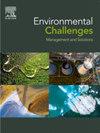Surveying urban anglers with community partner input to assess contamination risk and inform environmental management
Q2 Environmental Science
引用次数: 0
Abstract
Fishing for food in urban areas is common across the world, but the health risks of consuming contaminated fish and shellfish are often understudied and underreported, as are the demographics of urban angling communities. We worked with community partners from governmental and local organizations in New Haven, Connecticut, USA to better understand the behaviors, perceptions, and values of urban anglers, and to identify contaminant risks and risk mitigation strategies. With community partner input, we designed and disseminated a survey to urban anglers in the city. Results indicate that fishing for food is prevalent among anglers in New Haven, that anglers target common game species for consumption, and that anglers are generally concerned about the health risks and contributing factors of fish contamination. With the survey results in mind, we identified mitigation actions with community partners that could abate adverse health risks to New Haven anglers. Overall, the strategies that most community partners agreed would be both effective and feasible included updating long-form advisories, improving and increasing the signage around known popular fishing locations (especially those close to point-source pollution sites), hosting community-led educational opportunities for anglers, and expanding water quality and fish contaminant monitoring.
利用社区伙伴的意见调查城市垂钓者,以评估污染风险并为环境管理提供信息
在城市地区捕鱼取食在世界各地都很普遍,但食用受污染的鱼类和贝类的健康风险往往没有得到充分的研究和报道,城市钓鱼社区的人口结构也是如此。我们与来自美国康涅狄格州纽黑文政府和地方组织的社区伙伴合作,更好地了解城市垂钓者的行为、观念和价值观,并确定污染物风险和风险缓解战略。在社区合作伙伴的参与下,我们设计并向该市的城市垂钓者传播了一项调查。结果表明,纽黑文的垂钓者普遍以捕鱼为食,垂钓者以常见的猎物为消费目标,垂钓者普遍关注健康风险和鱼类污染的影响因素。考虑到调查结果,我们确定了与社区合作伙伴一起采取的缓解行动,这些行动可以减轻对纽黑文垂钓者的不利健康风险。总的来说,大多数社区合作伙伴同意的策略既有效又可行,包括更新长篇建议,改善和增加已知热门捕鱼地点(特别是靠近点源污染地点)周围的标志,为垂钓者提供社区主导的教育机会,扩大水质和鱼类污染物监测。
本文章由计算机程序翻译,如有差异,请以英文原文为准。
求助全文
约1分钟内获得全文
求助全文
来源期刊

Environmental Challenges
Environmental Science-Environmental Engineering
CiteScore
8.00
自引率
0.00%
发文量
249
审稿时长
8 weeks
 求助内容:
求助内容: 应助结果提醒方式:
应助结果提醒方式:


